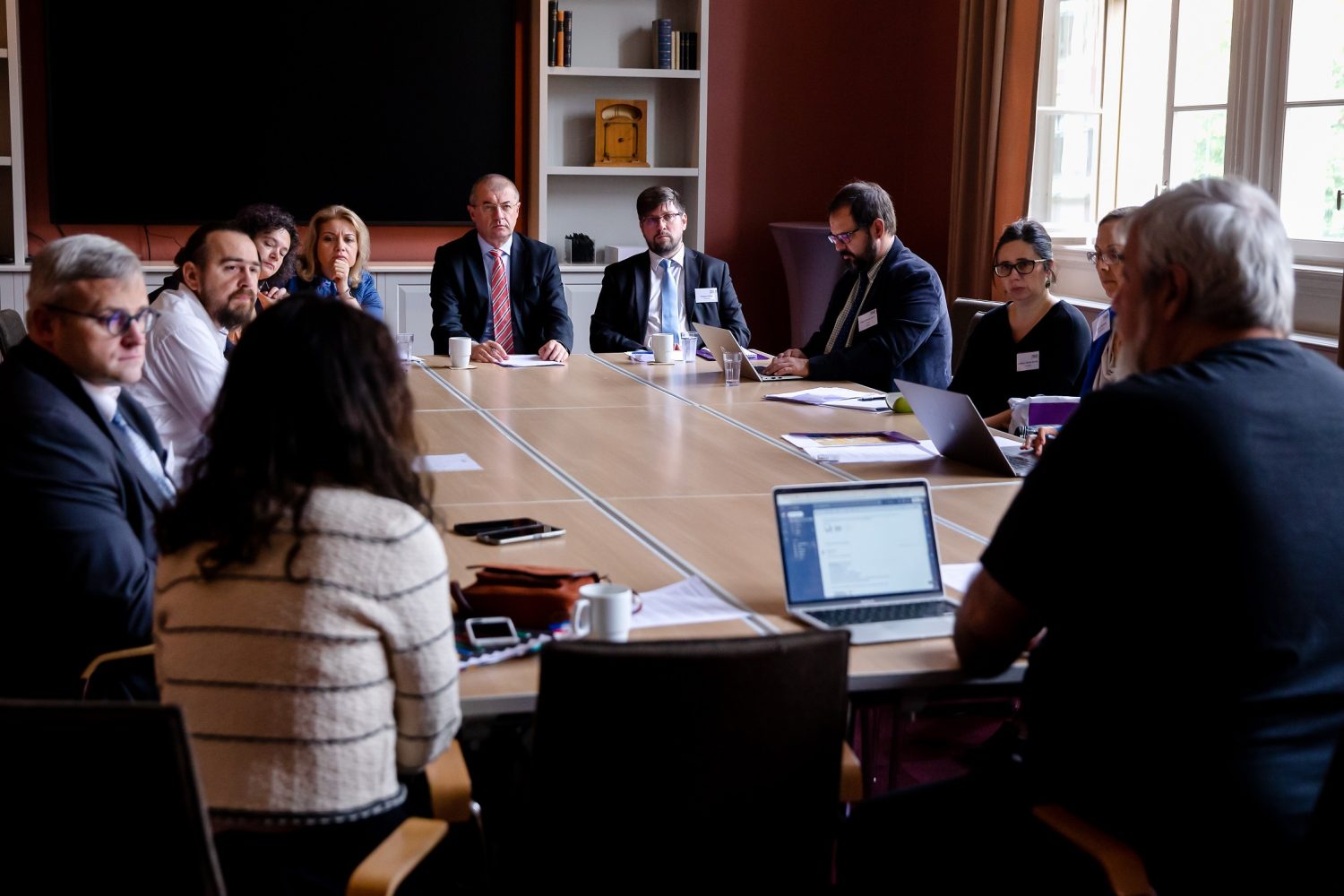
Providing a practical educational tool to overcome the lack of knowledge of the genocide of the Roma in mainstream society and to help counter antigypsyism/anti-Roma discrimination.

Providing a practical educational tool to overcome the lack of knowledge of the genocide of the Roma in mainstream society and to help counter antigypsyism/anti-Roma discrimination.
Learn about the Project’s approach and activities.
Launched in 2022, the IHRA’s Project to develop Recommendations for Teaching and Learning about the Persecution and Genocide of the Roma during the Nazi era is addressing:
Roma are the largest ethnic minority in Europe. For centuries they have suffered discrimination, racism, and persecution, which peaked with the murder of Roma and Sinti during the Second World War. Yet the genocide of the Roma and Sinti has long been widely ignored. While the genocide of the Roma took place alongside the events of the Holocaust, the distinct experiences of all victim groups explicitly targeted by Nazi Germany and its collaborators are specific in many ways. In order to appropriately teach about the genocide of the Roma, it is important to acknowledge the unique history of this genocide and pay tribute to the Roma victims and survivors. Learning about this history can help dismantle stereotypes and discrimination today.
IHRA Member Countries share a commitment to “Remember the genocide of the Roma” and “acknowledge with concern that the neglect of this genocide has contributed to the prejudice and discrimination that many Roma communities still experience today.”
The project aims to fulfill one of the IHRA’s three pledges made at the Malmö International Forum on Holocaust Remembrance and Combating Antisemitism, Remember – ReAct.


The IHRA pledged to develop recommendations on teaching and learning about the genocide of the Roma at the Malmö International Forum on Holocaust Remembrance and Combating Antisemitism.
The project is led by the IHRA’s Committee on the Genocide of the Roma in close interdisciplinary cooperation with the experts from the IHRA’s other Working Groups and Committees, its Permanent International Partners, and in dialogue with Roma civil society actors and representatives.
The project team is led by Misko Stanisic (EWG/Serbia, Project Chair) and Nina Krieger (MMWG/Canada, Deputy Project Chair), and includes IHRA experts from the Czech Republic, Germany, Greece, Romania, Slovakia, Spain, Switzerland, the United Kingdom, and the United States, as well as representatives from the Council of Europe ADI-ROM, OSCE/ODIHR, the United Nations, and the EU Fundamental Rights Agency.